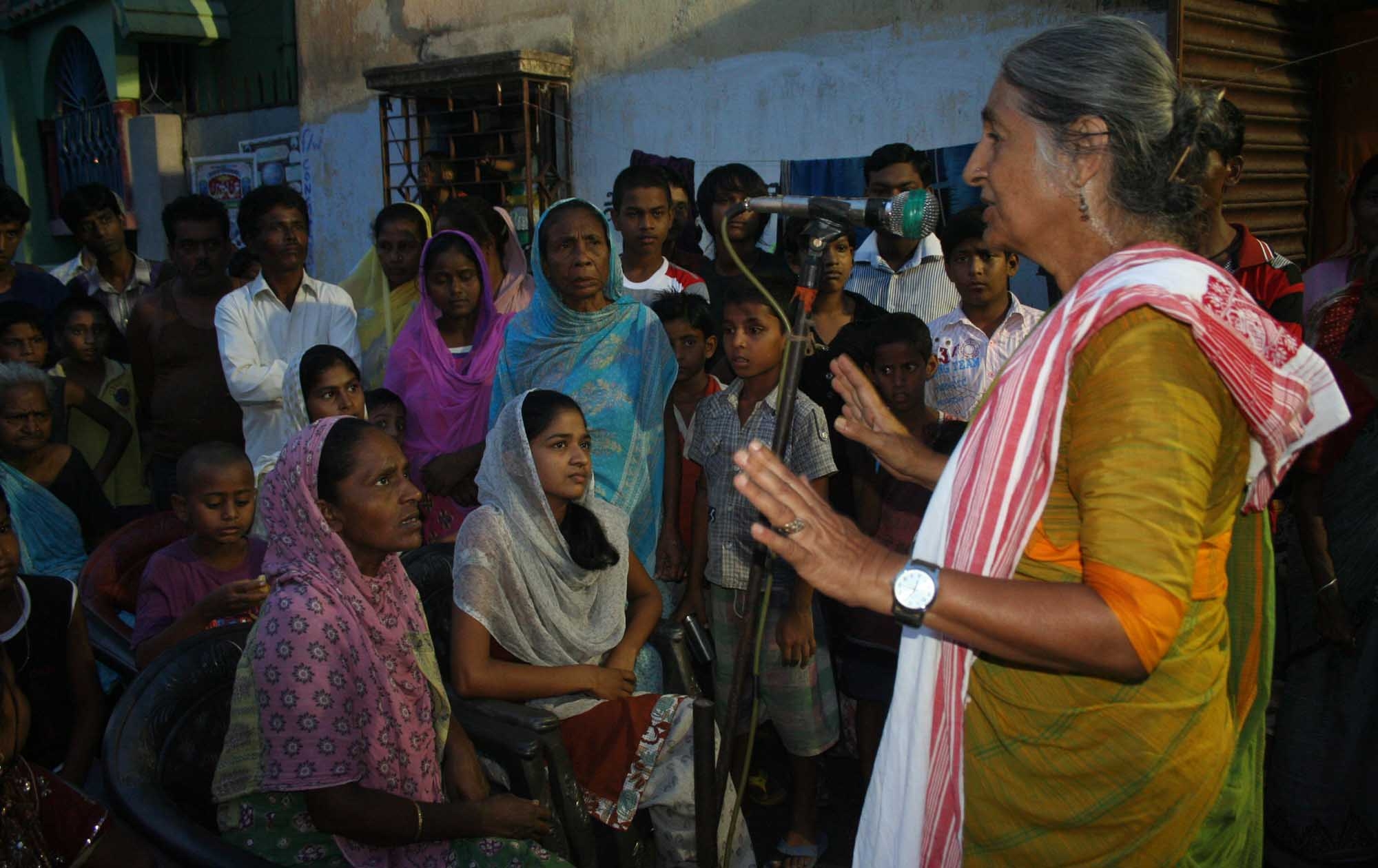
Red Flag Needed in these Uncertain Times Barrackpore Fights Back
From our special correspondent
THESE ‘coolie lines’ are mini-India. Not that ‘mini’ though, hundreds living in shanty rooms, busy local markets, life tuned to working hours of the jute mills, growth and decline of the jute economy. You can hear overlapping of Hindi of Samastipur, Odishi of Keonjhar, Telugu of Nellore, Urdu and slashing Bengali at the same time. ‘Coolie’ is a term, the legacy of which dates back to the opening of a series of jute mills beside the river Ganges by British entrepreneurs in Barrackpore. These working class habitations are reflective of extreme exploitation, struggle for decent existence and a strong bond overriding religious and social identities.
In Shyamnagar, for example, these light and shadow alleys are lines of Weverly jute mill. The workers, their forefathers, have seen histories made and unmade here. Strong trade union movements, strikes, resisting attacks in the seventies, glimpses of new light of life through the days of Left Front government, the deepening crisis of industries and finally three years of so-called ‘Change’ - had generated a treasure of experiences here. One can clearly feel the sense of despair, partly a fear psychosis among the workers and their families. The entire Barrackpore industrial area is facing tremendous rise of anti-social activities, leading to murders, extortions, dominance of gangs promoted by the ruling party. The workers are concerned, for the first time, for peace and communal harmony too.
Jute industry in Bengal is facing a multifarious crisis. Many of the mills in Barrackpore are either closed or are trimming production, making workers redundant. One of the principal reasons for this crisis is the dilution of the system of jute packaging by the central government, affecting the demand and production. The owners rarely invest for technological development and the initiative from both the centre and state governments has come to a standstill for the last three years. On the other hand, in the changed political atmosphere of the state, the owners are aggressive and workers’ demands are being ignored. Trade union activists have been attacked, arrested in false cases at regular intervals. It is the Left whose consistent fight within and outside the parliament kept jute industries going. These questions have once again surfaced in the election campaign.
In fact, the industrial scene in this traditional hub of manufacturing has undergone serious changes over the decades, particularly with the onslaught of neo liberal policies. Many of the public sector units have been forced to close. New industries have come up but not in enough numbers to compensate the loss. Promises of railway factories remained on paper even after the ministry was handed over to existing Member of Parliament, Dinesh Dwivedi by TMC supremo Mamata Banerjee after she became the chief minister. Promise of metro railway to this northern suburb of Kolkata proved to be a non-starter. Barrackpore is uncertain about its future.
Much-touted ‘Change’ has brought a terror-raj in large parts of Barrackpore. Some of the ruling party MLAs have turned into what would have been termed in Hindi heartland as ‘Bahubali’. They have practically issued decrees of ban on opposition parties, mainly the CPI (M). Numerous Party offices have been destroyed, burnt and repeatedly attacked. Party activists and their families have been attacked. In a glaring example, TMC hooligans attacked the houses of 10 elected Left councilors in a single night, kidnapped some of them, forced them to write resignation letters to forcibly seize control of the Halishahar municipality. In Amdanga, some villages remain without men folk after repeated attack of TMC gangs and police. But, it is not merely the political activists who have become the target of these mafia gangs; small traders, middle class professionals, teachers are now living under constant threat of extortion and other hooliganism.
The fight here is to restore democracy, to assert the power of society over anti-social elements. Though a difficult task, the Left movement in Barrackpore has the legacy and strength to withstand the struggle. One of the traditional Left bases, Barrackpore is fighting back through the election campaign.
Subhashini Ali, CPI(M) candidate, with Left activists has broken the barrier of terror to reach to almost each and every corner of the constituency in last two and half months with dogged determination. Ali, a trade union worker herself, has received warm receptions, sometimes beyond expectations, particularly in the working class areas. She has created a special bond with the women, who are under constant threat of harassment in the state now. She has communicated with the voters in Hindi without any pretension of knowing Bengali. CPI(M) workers have opted for intensive campaign rather than high-flying methods. Rallies and massive mass mobilisations have taken place in last two weeks and leaders like Buddhadeb Bhattacharjee, Prakash Karat, Manik Sarkar, Sitaram Yechury, Brinda Karat , Biman Basu have addressed the gatherings. Youth brigades have taken particular interest and apart from the streets, they have hit in numbers in social media too.
‘Red flags are the necessity of this uncertain time’, a refrain in the ‘Coolie Line’ sums up.


